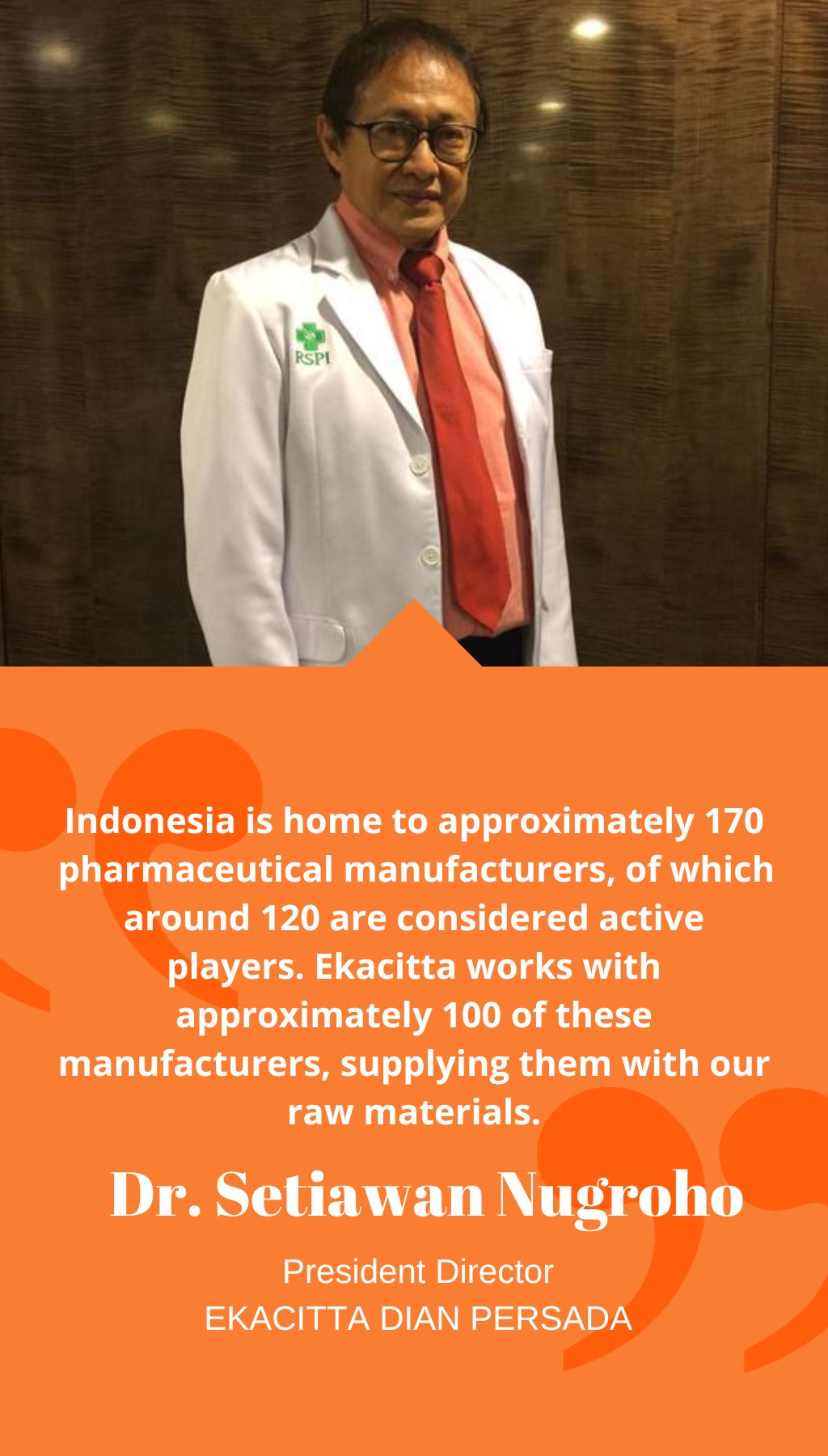
- Indonesia | 26 July 2015

Please explain the evolution of Ekacitta from its inception in 1996 to today.
The idea for Ekacitta started taking shape in 1994 when a group of Hungarian business people approached us with an interest in entering the Indonesian pharmaceutical market. Given my background as a pharmacist, we formed a partnership and spent several years planning before officially establishing Ekacitta in 1996. Since then, Ekacitta has evolved into a supplier of raw materials for the pharmaceutical, cosmetic, and food sectors in Indonesia. While we cater to various industries, our primary focus remains on supplying raw materials to the healthcare sector, with pharmaceuticals being the largest segment of our business due to its high value.
The majority of Indonesia’s pharmaceutical manufacturers are concentrated in Java. How does this shape your distribution network?
Ekacitta currently operates seven branches throughout Indonesia, each equipped with warehouses and employees. These branches are strategically spread across the country. However, we recognize the need to expand further and are planning to open another branch in Medan. Establishing a local presence is crucial in this industry as it allows us to have the necessary knowledge and daily communication in the local dialect, particularly in the Hokian language, which contributes to our success in serving the Indonesian market.
How many manufacturers utilize your raw materials?
Indonesia is home to approximately 170 pharmaceutical manufacturers, of which around 120 are considered active players. Ekacitta works with approximately 100 of these manufacturers, supplying them with our raw materials.
What is the competitive landscape for wholesalers in Indonesia’s pharmaceutical sector?
In order to regulate the pharmaceutical industry and control the flow of materials into Indonesia, the government imposes limitations on the number of wholesalers authorized to sell raw materials for pharmaceuticals. Wholesalers are required to obtain a license, which has a duration of either two or five years and must be renewed for continued operation. Due to the difficulty of obtaining a wholesalers (PBF Bahan Baku Farmasi) license, the market for raw materials suppliers in Indonesia is relatively small, comprising around 10 to 15 leading companies.
Historically, how has Ekacitta performed in terms of growth, and how does it plan to capitalize on opportunities in the future?
Over the past five years, Ekacitta has experienced significant growth, with our business expanding six-fold during this period. Our growth strategy focuses on nurturing our existing relationships with principals and products while closely monitoring demand trends and market opportunities. We pay close attention to Indonesia’s healthcare reforms and the resulting demand for specific drugs. By aligning ourselves with these trends, we have achieved a growth rate of 15 to 20 percent this year. We intend to continue capitalizing on these opportunities and sustain similar growth in the future.














